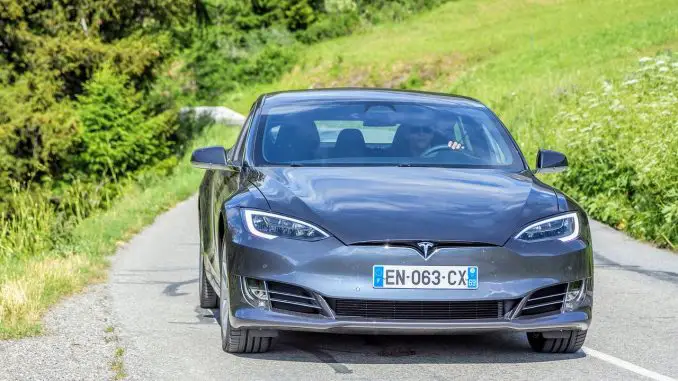
Soon, Best Environmental Car will be selected in 2019. Environmental and climate impact can be greater in car production than in driving during the entire life of the car. Therefore, Green Motorists have asked the general agents for all nominated models for life cycle analyzes of manufacturing. The answers are reported in a new report.
Green Motorists have nominated 45 car models for the Environmental Best Car Award in 2019. In the report Environmental Best Cars 2019, factual information about all these car models is presented, including climate impact at manufacture and scrapping. This climate impact is calculated on the basis of a standard model that only takes into account the car’s weight and type of driveline.
“It is widely known that an electric car affects the climate more in production than a car with an internal combustion engine,” says Green Biliter’s Secretary General Martin Prieto Beaulieu. This is mainly because a lot of energy is needed to make the electric car’s large battery. But the potential for improvement is great, and several manufacturers are now investing in “climate-neutral” electric car factories.
Green Motorists have asked the General Agents to submit their own life cycle analyzes (LCA) of all car models nominated for Environmental Best Car 2019. There, such efforts by individual car manufacturers can have an impact. These LCA makes it possible to show a model-specific manufacturer’s information on the climate impact of manufacturing and scraping in the report Environmental Best Cars 2019 next to the Green Motorists own standard figure.
The response from the general agents is presented in the new report Are our environmental cars manufactured in a sustainable way? For example, Renault has sent a full LCA for the Renault Zoe electric car. Audi contributes an LCA for the Audi A3 g-throne gas car. They also announce that their Audi e-tron electric car is manufactured in their “climate neutral” factory in Brussels, but they have not been able to contribute a concrete LCA for the car itself. Tesla chooses not to publish any LCA. They announce that their Gigafactory plant will become self-sufficient in renewable energy. Going out with LCA before it could be misleading, they think.
– In many people’s eyes, Tesla’s Gigafactory is already climate neutral, says Martin Prieto Beaulieu. This shows that LCA is really needed as consumer information. It is not enough to market beautiful plans; We consumers need to get a black and white on what it looks like on the workshop floor here and now.
On September 9, VW launched its new electric car ID.3 at the car showroom in Frankfurt. It is marketed as the world’s first electric car produced “climate neutral”. Under the slogan “goTOzero”, the entire company has the ambition to be “climate neutral”.
These promises and ambitions are very good, but it is difficult to value them as there is no standard for how LCA for vehicles should be performed. It also makes it difficult to compare data from different manufacturers. There is ongoing work in the EU to develop a standard. Volvo Cars welcomes this work, but the car industry at European level is resisting.
It is necessary to standardize the LCA for vehicles. Only when such a standard is in place can LCA be used as effective consumer information. Only then will the promises of Volkswagen and other car manufacturers become “climate neutral” a real meaning.
Under the slogan We Want to Know, Green Motorists is campaigning for a compulsory environmental and energy declaration of vehicles. Political support appears to be significant. To be worthy of the name, such a declaration must, in the long run, include the climate impact of the vehicle’s manufacture and scrapping, information on raw materials and their origin, as well as on recycling.
– It is very gratifying that the automotive industry is now turning towards electrification. But we consumers must be given the opportunity to keep a hand on the wheel. Otherwise, there is a great risk that we will turn into a ditch of unsustainable exploitation of child labor and natural resources in the search for raw materials for batteries.

Leave a Reply